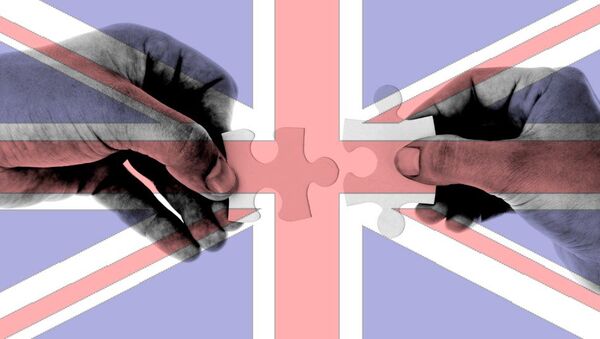Forty-six percent of those polled said they thought EU immigration had been good rather than bad for the country's economy, with 30% saying the opposite. Although over half of respondents believed it has had a negative effect on the UK's National Health Service.
More say #EU immigration has been more bad (55%) for the NHS than good (27%) https://t.co/ccspOcrg1g pic.twitter.com/tepReZbSi7
— Ipsos MORI (@IpsosMORI) June 20, 2016
The polling supports an apparent division in public opinion that has come to define the debate over Britain's EU membership, which the country is set to vote on this week.
Half of us think #EU immigration has had no impact on where we live: https://t.co/ccspOcrg1g pic.twitter.com/s5nIFgbchJ
— Ipsos MORI (@IpsosMORI) June 20, 2016
That divide, however, has fueled accusations that the Vote Leave campaign has been fuelled by misinformation and appeals to xenophobia. John Edward from the Stronger In campaign told Sputnik:
"We've never said that we think migration is one of the key issues in this referendum because there's more non-EU migration into Britain every month than there is from the EU."
Edwards added: "To put it mildly, people's awareness of what is actually true and not true about Europe is quite substantial. I've spoken as much in this campaign over the last three months about what Europe doesn't actually do than what it does."
Oscar is shocked and offended by the anti-EU myths he's seen online #CatsAgainstBrexit pic.twitter.com/Z2Or3513PQ
— lara (@creepygrrl) June 20, 2016
The campaign for Britain to leave the EU came under fire this week following a controversial poster released by Nigel Farage's UK Independence Party, which was likened to Nazi propaganda films of the 1930s.
Funny how the prominent white dude gets blocked out of the poster. 🤔 pic.twitter.com/54nI3xo7oK
— Rupert Myers (@RupertMyers) June 16, 2016
Of course, not all of those campaigning for a Leave vote are comfortable with that emphasis on immigration. Respect political party leader — and Grassroots Out campaigner — George Galloway told Sputnik that negative opinions towards immigration were due to confusion between economic migration and refugees — saying:
"Are there xenophobes in our campaign? Yes — and there are xenophobes in the Remain campaign. There are xenophobes everywhere, but everyone is responsible for what they themselves say and write, not what other people in a binary referendum choice [say] who are going to vote the same way as you."
"Nick Griffin [leader of the far-right British National Party] was against the Iraq War, but that wasn't a reason for being in favor of the Iraq War," he added.
Ipsos MORI interviewed a representative sample of 1,257 adults aged 18+ across Great Britain. Interviews were conducted by telephone 11th — 14th June 2016.
UK citizens will vote on June 23 in a referendum on the country's EU membership.


